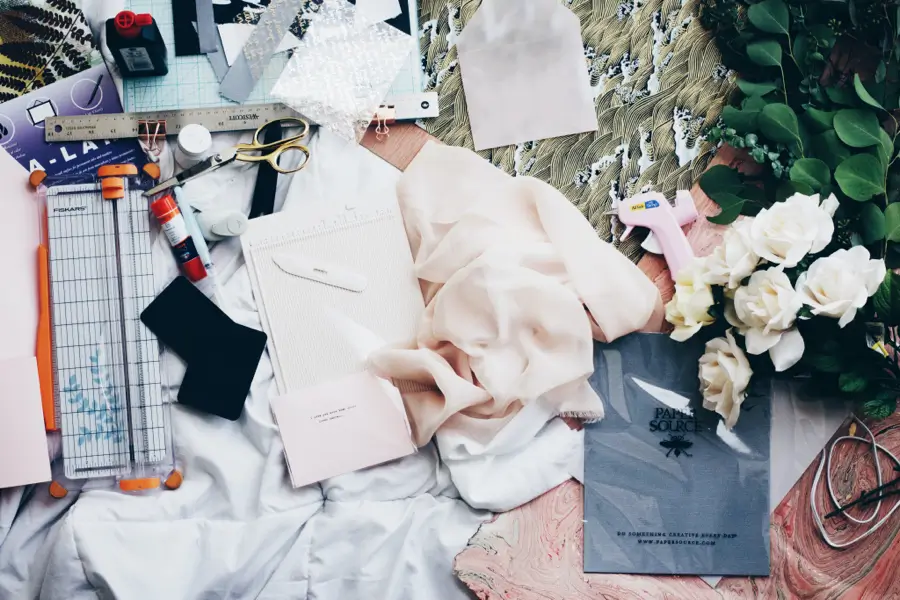
PROFESSIONAL DEVELOPMENT

Before diving into the specifics of fashion design jobs, it’s important to have a basic understanding of the fashion industry as a whole.
The fashion industry has a rich history and has undergone significant transformations over the years. From the emergence of iconic fashion houses to the rise of fast fashion, the industry has constantly adapted to changing consumer demands and trends.
Today, the fashion industry is a global powerhouse that encompasses various sectors, including design, manufacturing, retail, and marketing.
At the heart of the fashion industry lies the fashion designer. Fashion designers are the creative minds behind the garments and accessories we see on the runways, in stores, and on the streets.
Their role goes beyond sketching designs; they are responsible for conceptualizing and creating unique and visually appealing collections that reflect current trends and resonate with the target audience.
Fashion designers need to have a keen eye for detail, a strong sense of aesthetics, and a deep understanding of fabrics, colors, and silhouettes.
Fashion design jobs encompass a wide range of roles and settings.
Here are some common types of fashion design jobs:
Working for high fashion and luxury brands is considered the pinnacle of the fashion industry. Designers in this sector create exclusive and high-end collections that are showcased in prestigious fashion shows and worn by celebrities and affluent clientele.
These positions often require a strong artistic vision, impeccable craftsmanship, and a deep understanding of couture techniques.
Retail and commercial fashion brands cater to the mass market and produce collections that are more accessible and affordable. Designers in this sector focus on creating garments and accessories that appeal to a broader customer base.
This segment offers a wide range of opportunities, from designing for popular clothing chains to working in-house for department stores.
Some fashion designers choose to establish their own independent labels or work for smaller boutique brands. This path allows for greater creative freedom and the opportunity to build a unique brand identity.
Independent designers often take on multiple roles, including designing, sourcing materials, and managing the business aspects of their brand.
While creativity and talent are essential in the fashion industry, formal education in fashion design can provide aspiring designers with the necessary skills and knowledge to succeed in their careers.
Many fashion design jobs require at least a bachelor’s degree in fashion design or a related field. These programs typically cover a wide range of topics, including fashion sketching, pattern-making, textiles, garment construction, and fashion history.
Additionally, internships and work experience during the course of study can provide valuable hands-on learning opportunities and industry connections.
Fashion design careers are not linear; they offer various pathways for growth and advancement.
Here are some common career stages in fashion design:
Entry-level positions in fashion design often involve working as an assistant designer, design intern, or design assistant.
In these roles, individuals have the opportunity to gain practical experience, assist senior designers, and contribute to the design process. This stage is crucial for building a strong foundation in design techniques and industry practices.
As designers gain experience and develop their skills, they can progress to mid-level and senior positions in fashion design.
These roles involve greater responsibility and creative input in designing collections, overseeing design teams, and collaborating with other professionals in the industry.
Mid-level and senior designers often have the opportunity to shape the brand’s aesthetic and direction.
Freelancing is another avenue for fashion designers to explore. Freelancers have the flexibility to work on various projects, collaborate with different brands, and express their creativity in diverse ways.
This path allows for greater independence and the opportunity to work on a range of projects, from fashion shows and photo shoots to custom designs for individual clients.
Fashion design offers a world of opportunities for creative individuals who are passionate about design, aesthetics, and the ever-evolving world of fashion. Whether it’s designing for luxury brands, creating accessible fashion for the mass market, or establishing an independent label, the field of fashion design provides a platform for self-expression and innovation.
By acquiring the necessary skills, pursuing formal education, and gaining practical experience, aspiring fashion designers can embark on a rewarding career in this exciting industry.
Remember, fashion design is not just about creating beautiful garments; it’s about understanding the market, connecting with consumers, and making a lasting impact through creativity and craftsmanship.
So, if you have a flair for design and a passion for fashion, the world of fashion design jobs awaits you with endless possibilities.

The Art Career Project is a trusted resource for emerging and professional artists.